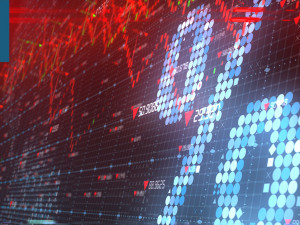
Saunders parting shot, more hikes
Morning mid-market rates – The majors
19th July: Highlights
- Treasury to clash with public sector over pay
- Housing data will give a clue about ongoing economic strength
- Inflation growth to have slowed in June?
GBP – The longer the Bank of England waits, the worse it will be
Saunders was calling for interest rates to rise long before his colleagues agreed with him and he has constantly voted for the size of hikes to be increased.
Saunders believes that rates still have some way to go to reach the neutral point where they are neither stimulating or restricting the economy.
The current wave of inflation which has become a global phenomenon over the course of 2022 is based upon demand for energy as the Chinese machine returns to full output and the war in Ukraine that has had a significant effect on the price of several foodstuffs.
With the oil price beginning to show signs of levelling off, there is a chance that inflation itself will also begin to level off, although it is probably too soon for tomorrow’s release of data to do anything but show a further increase in the headline.
Saunders has always believed that inflation is the single most destructive element affecting the economy, and while it is clear that the economy has been out of equilibrium during the final years of the low-interest period, the current excessive rate of inflation is not due to increased demand in the UK, but the effect on supply of the issues already mentioned.
Rising interest rates, which are currently at 1.25%, having been increased at every MPC meeting since last December, could have a negative effect on growth if they are allowed to rise above the neutral rate.
Already there are fears that further increases over the coming months will tip the economy into a recession.
While this is an issue that other G7 economies are suffering from, there are particular drivers within the UK economy, not least of all Brexit, that are peculiar to the UK.
Another vote took place last evening in the poll to find a new leader for the Conservative Party. Former soldier and Defence Secretary Tom Tungenhat was the latest to fall by the wayside leaving just four remaining. It is expected that the final two will be selected tomorrow with former Chancellor Rishi Sunak having stretched his lead even further.
Yesterday, the financial markets took something of a breather during the record temperatures. Sterling benefitted from a correction in the recent strength of the dollar. It rose back above the 1.20 level, reaching 1.2033, although it did fall back to close at 1.1952.
Recommend our services and earn up to £75 per successful referral
USD – According to the largest banks, economic outlook slowing
A slowdown in the economy has been labelled the most likely candidate, but while the growth in new business is slowing, the normal tell-tale sign of an economy slipping into recession, an increase in past due payments hasn’t really been seen at all.
There have been no high-profile bankruptcies in the commercial sector, while the fact that the number of workers employed and earning salaries that may not be keeping up with, but still provide them with an income to keep up with payments is a positive for the banking community.
Banks have shifted their focus during the low-interest-rate period and are far more driven by fee income than risk-taking. With the rise in interest rates seeing equity prices fall, calls continue to emanate from the larger financial institutions for the FOMC to exercise caution.
The more bearish members of the FOMC see inflation as a far more serious threat than a slowdown in the economy.
Even if the economy were to fall into a technical recession by posting negative growth or a contraction in the second quarter, it would pale into insignificance when placed against inflation, which could very easily reach 10%.
That is the reasoning being used behind closed doors by Jerome Powell and his colleagues, although they will keep this to themselves, any thoughts of deliberately pushing the economy into recession as a valid tool to fight inflation.
It has been said by several eminent economists that while the employment data remains positive, a recession is very unlikely and until the monthly NFP falls significantly, possibly even into negative territory, that it will be virtually impossible to take even core inflation.
There has been a slight increase in the weekly jobless claims data recently. It is rising towards 250k per week. This will begin to register with the FOMC, but there will be no alarm bells ringing until it is averaging over 300K.
The dollar has begun to correct. The depth of the correction will determine the size of its next rally, with the 110 level still most traders’ long-term target.
Yesterday, the index fell to a low of 106.88, cloning at 107.44.
EUR – It’s the core that the ECB needs to tame
In the hawkish corner, rising inflation no matter its cause is simply unacceptable and the Central bank needs to tighten monetary policy by hiking interest rates to bring it under control.
The Bundesbank firmly believes that the change in the inflation target that was a product of an ECB symposium last summer made the Bank less conscious of the dangers of rising prices.
The fact that the rise in inflation is as much a product of globalisation and the interweaving of several nations’ economies when inflation is running at 20% in Baltic nations is never going to work. It doesn’t really send out a signal to the global financial community that the ECB is serious about lowering headline inflation.
As written above, the war in Ukraine, the rising cost of energy and the end of the Pandemic have brought to an end the low interest rate global economy that had its roots in the Eurozone’s own credit crisis ten years ago.
Of course, there will be a period of adjustment and having risen to where it is now over a period of little more than six months, it will take at least three or maybe four quarters for headline inflation for return to a more acceptable level, but it will need to be accepted that core inflation may not return to its pre-pandemic level as the dynamics of the markets have now changed.
What is bringing the most difficulty is the imbalance that is being seen, where savers are not only receiving virtually no return on their funds, but their value if being denuded by the rise in the cost of living.
It would make sense for savings rates to be increased, but as a tool to target inflation, since the time for that to be effective has either passed or is some time in the future.
The ECB will be considered either hawkish or soft on inflation depending on the result of this week’s vote. In reality that will not be the outcome, it will be more based around how the Union can pull together to present a united front.
The euro has pulled away from parity versus the dollar, but if the hike is twenty-five basis points, the market will make a concerted effort to push it through and keep it there.
Yesterday, the single currency rose to a high of 1.0201, closing at 1.0142.

About Alan Hill
Alan has been involved in the FX market for more than 25 years and brings a wealth of experience to his content. His knowledge has been gained while trading through some of the most volatile periods of recent history. His commentary relies on an understanding of past events and how they will affect future market performance.”



